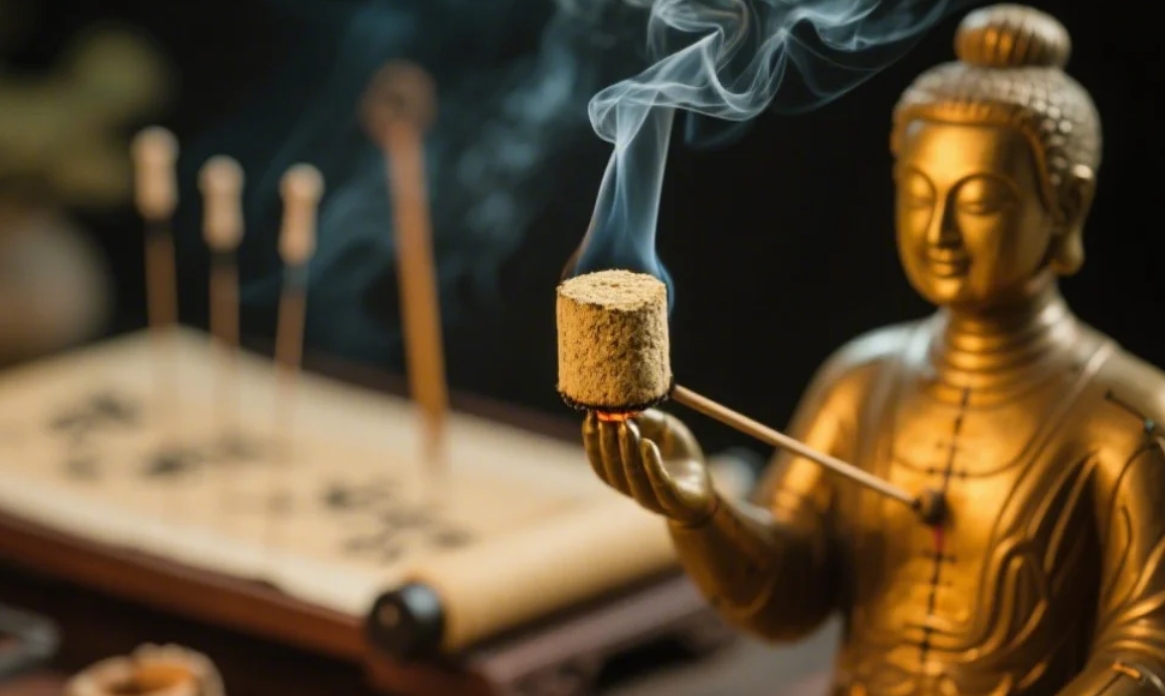Tuesday afternoon
Yangyang’s dad suffered a kidney stone attack and was in terrible pain. I was so absorbed in work that I had to drop everything—nothing matters more than family health. We went to the hospital for an ultrasound. After drinking lots of water, his condition improved and the stone passed, but the doctor recommended a short hospital stay to see if surgery would be necessary to remove any remaining fragments—and spare him future agony. So we decided to admit him the next day. That upended all my plans. Work would have to wait: I messaged our partner that we’d handle the new website in a few days, arranged for neighbors to accept incoming packages, and took advantage of this unexpected free time to catch up on errands I’d been postponing.
Tuesday evening: getting a perm
My hair had grown to a length that would drape nicely once permed—I’d been wanting to do it for months but never committed. A perm takes at least four hours, so I told Dad to head home and went alone to the salon. From 6pm until 10:30pm they worked on my hair—and it turned out great. Dad called in a huff: “Why aren’t you home yet? You said three hours!” The stylist laughed and said, “Your husband’s pretty patient—what’s up with him losing his temper?” I told him, “He’s probably just worried I’m out too late.” When I finally got home, he was fine—just unhappy about my late return, not about the perm itself.
Wednesday daytime: hospital checks
We arrived early. Dad went for his tests while I sought out Director Zheng, an old friend who runs the digestive department. I rarely fall ill, but whenever friends needed referrals I’d call him. I even once delivered him moxa sticks and tools as a gift, but he’d been too busy to accept them. This time I brought some again, plus my favorite moxibustion tools, and asked about the safety of minimally invasive stone-removal surgery. He said we’d wait for the results before deciding. If surgery was needed, he’d recommend the best urologist—the same doctor who’d once performed a circumcision for Dad and a friend’s son. That put my mind at ease.

Zheng noticed I looked healthier and had gained weight. I explained that my colitis had healed thanks to consistent moxibustion. He was intrigued—asking how long it took, what methods I used. I demonstrated a wooden moxa box I’d brought; he loved it. He asked if he could bring other colleagues or patients to see my tools. I promised to bring more the next day and he kindly said he’d visit Dad in the ward to reassure him.
At noon Dad had to fast for a contrast study in the afternoon, so I went out alone for lunch. I discovered a little Sichuan shop run by a young woman—I had a bowl of her hot-and-sour noodles (suānlà fěn). Her regulars practically helped run the place, greeting new customers and even delivering orders for her. She only used top-grade ingredients, and people trusted her completely. It struck me how similar it was to my own business: once you prove you sell the genuine article, customers happily spread the word.
After lunch I passed a street stall selling all kinds of moxa sticks and moxibustion tools. The vendor enthusiastically explained the price-and-quality differences: many were made from golden moxa wool aged five years, priced no lower than ¥20 per stick. If I weren’t in this field, I’d have bought some myself—they did look beautiful, though the scent was too strong. It reminded me why I insist on my own pure-moxa formula.
Back in Dad’s ward, the radiologist reported they still couldn’t see any stone in the ureter’s midsection—it’s notoriously hard to image. Poor Dad had needles in both arms for the IV contrast, and his arms were swelling. The doctor guessed the stone had moved up toward the kidney and might settle nearer the bladder, where removal would be safer. Since nothing showed on imaging, surgery was off the table for now. We’d try medication, exercise, and hydration for a few days, then re-scan. I said, “If it’s already migrating, another round of natural expulsion might do it.” Dad, still dreading the pain, agreed to the plan.
Wednesday evening: a happy surprise
That afternoon Dad went to play badminton at the club, where he ran into Yangyang’s homeroom teacher. The teacher praised Yangyang’s focus—he’d just scored 100% on a test. Dad told me he was proud: “When he really applies himself, he’s unstoppable.” That evening Yangyang came home and asked, “Mom, can you get me some English, math, and Chinese practice papers?” I teased, “Going for first place?” He said, “No—it’s that girl behind me who’s too cocky. I want to prove boys can do just as well.” I smiled—competition can be a good motivator, especially when it’s handled respectfully.
Thursday: a “vacation” in the hospital
We slept in, then I packed an international parcel and gathered more moxibustion tools to deliver to Director Zheng. Breakfast? More sour-and-spicy noodles—of course. Once again, his regulars insisted I go first. I thanked them and dug in. Then I called Zheng, who said he’d be back in his office in 20 minutes. I waited in the ward, but he texted after 10 minutes that he was ready. I brought him the six-chamber moxa box, portable moxa belt, mini moxa device, blood-letting lancet, and some 2009 moxa sticks. He was astonished: “Where did you find such great tools? I’ve never seen these!” He even offered to pay—of course I refused. Some bonds transcend doctor–patient or buyer–seller. Eight years ago, as a fresh MD, he’d told me my discomfort wasn’t dangerous and to just relax with an over-the-counter patch—advice no hospital test could have given. I never forgot it.
He admired my recovery from colitis through moxibustion and admitted he himself had suffered chronic enteritis for five or six years. Hearing my story gave him hope. He confessed that, as a doctor, he felt trapped in air-conditioned wards, vulnerable to cold in ways he couldn’t avoid. We talked about the irony of healers falling ill themselves—like the famed Dr. Li Hong, who could treat everyone else but not himself. Zheng urged me to get a Traditional Chinese Medicine license and open a clinic; I laughed that I was just my own “lab rat,” but was happy to share my experience.
After his leadership team arrived, we returned to Dad’s ward. Dad teased me about the empty sushi plate—“You’ll freeze if you eat so much raw fish!” But I insisted that pickled ginger balances cold food, not frugality. Every meal is an opportunity for self-care.
At noon, Dad’s antibiotic infusion ran late—he didn’t start until 11pm. The ward’s air-conditioning was frigid; he lay bundled under blankets receiving his drip while I listened to a lecture on Chinese classics. We joked that this “vacation-style hospitalization” was rather pleasant: no chores, no work, just good food, fresh air, and gentle rehabilitation.
After the drip we went for sushi. Passing that roadside moxa stall again, I sniffed their stick burning and grimaced: “That scent is harsh—too pungent. We’ve never used anything like it.” Dad shrugged, “Your moxa sticks are the best.” I felt proud.
Thursday afternoon: market scouting & a new “lucky tree”
I shipped my little U.S. order, then stopped by a nursery to replace our sickly “happiness tree.” I picked a healthy sapling—Dad groaned under its weight, so I teased him: “I’m buying fresh health for us both!” He laughed so hard he nearly dropped it.
Back home on the balcony, I repotted the tree and tidied planters, chatting with my friend “Chongchong” about her summer travel plans—and sampling my 2006 Spanish red wine. She admitted she can’t judge vintages, but has a solid tolerance thanks to postpartum practice! Dad settled into the balcony hammock with his tablet. Greenery brings life to a space—and I love tending it. The kitchen’s his domain now.
Before dinner I handled another customer follow-up: early 2010 moxa sticks still don’t match the 2009 batch. I thanked her for the feedback—it reaffirms my roadmap.
Because of Dad’s illness, I’ve been out and about—but I’ve gained so much. Sometimes you have to let go of your agenda and embrace change. What seems like loss may turn out to be a blessing. Immerse yourself fully in the present, and you’ll find life can be just as exciting. My goal is to remain relaxed at all times—a lifelong practice that isn’t easy, but is always worthwhile.
When Yangyang came home tonight, he approved the new tree: “It’s great—let’s take good care of it.” Exactly what I was thinking.
